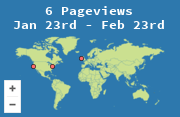Naledi Pandor, South African Minister of Science and technology recently gave a speech about the developments around South Africa’s bid to host the Square Kilometre Array (SKA) telescope. South Africa and Australia are the finalists in the bid to host the Square Kilometre Array (SKA) telescope.
The SKA is an internationally supported project to build the most powerful and technologically advanced research facility in the field of radio astronomy. It will utilise cutting edge technology in electronics, computing, network connectivity, material sciences and engineering. If this facility is constructed in Africa, it will catapult the Continent to the forefront of science for years to come.
In preparation for hosting of the SKA telescope, South Africa has introduced a comprehensive human capital development programme that supports students across the continent to study physics, astronomy, engineering and ICT. This programme has been extremely successful in attracting young African students into science and engineering and in producing a cohort of postgraduates.
To read Pandor’s full speech on defenceWeb Click Here!
Filed under: Edu News (Africa), Edu News (South Africa) | Tagged: astronomy, engineering, human captial development programme, ICT, material sciences, physics, Postgraduates, radio astronomy, Science, SKA, South Africa, Square Kilometre Array telescope, students, technology | Comments Off on Naledi Pandor’s speech on the Square Kilometre Array (SKA) telescope








